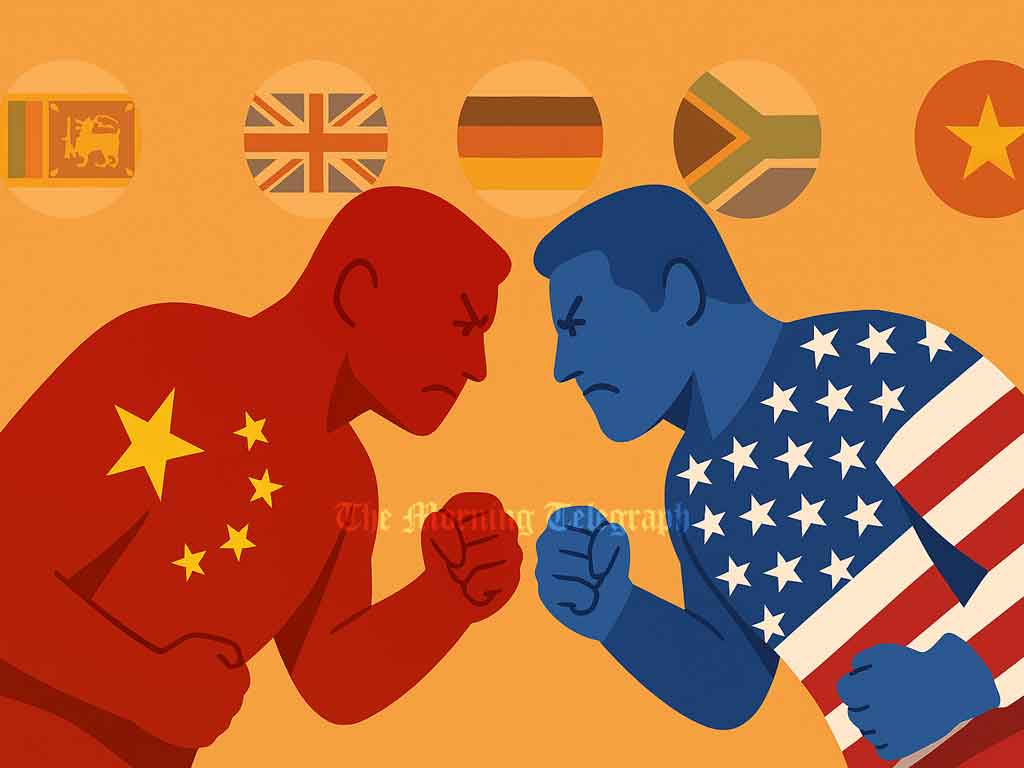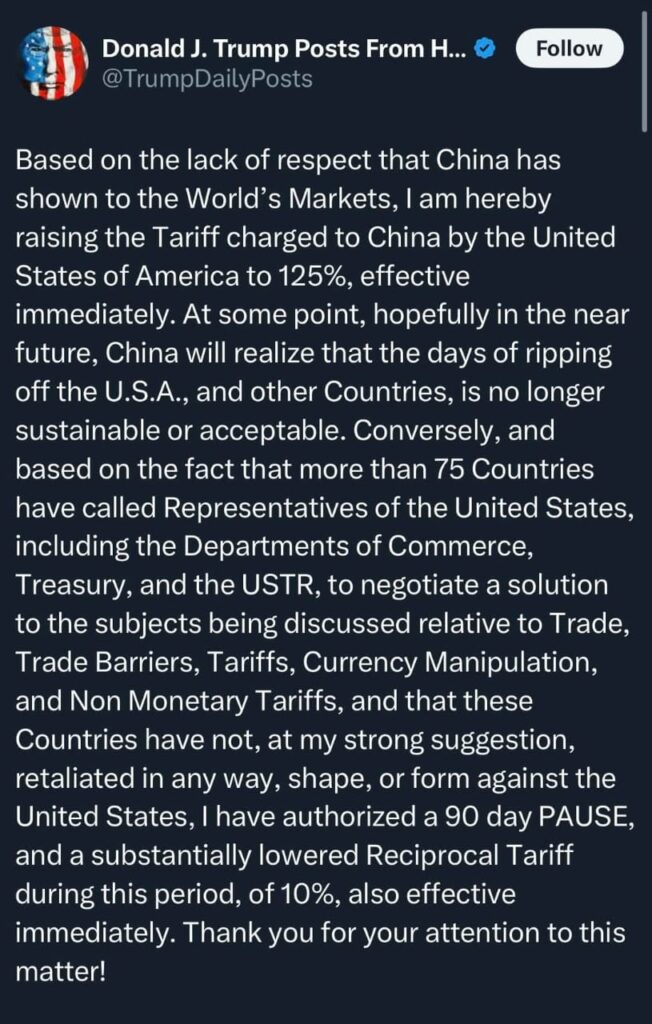
President Donald Trump has announced a temporary suspension of higher tariffs for several countries, including Sri Lanka, in a surprising reversal just hours after sweeping trade levies came into effect. The president authorized a 90-day pause and introduced a standard “reciprocal tariff” rate of 10% for these nations, while significantly escalating tariffs on Chinese goods to 125%.
This development follows Trump’s sweeping announcement last week imposing tariffs on all imports into the U.S., marking one of the most significant shifts in global trade policy in decades. The baseline tariff of 10% remains in place, but harsher rates had been set for countries the administration identified as committing unfair trade practices. This list included the European Union, Vietnam, South Africa, and many others, with tariffs ranging from 11% to over 100%.

However, following widespread market disruption and concerns over inflation, Trump moved to soften the blow. Global markets had reacted with heavy sell-offs, wiping out trillions in value and stoking fears of a looming recession. The U.S. government also saw its borrowing costs spike, with interest rates on government debt hitting 4.5%—the highest since February.
After Trump’s announcement of the 90-day suspension, U.S. financial markets rebounded sharply. The S&P 500 surged by 7% in afternoon trading, later closing with a 9.5% gain, while the Dow Jones rose 7.8%.
Posting on his Truth Social platform, Trump clarified that the tariff pause applied to countries that had not retaliated against U.S. duties. In contrast, China, which had responded to previous U.S. levies with steep retaliatory measures, faced an immediate increase in tariffs.
“At some point, hopefully in the near future, China will realise that the days of ripping off the U.S.A., and other Countries, is no longer sustainable or acceptable,” Trump wrote.
U.S. Treasury Secretary Scott Bessent defended the decision, saying it was unrelated to the financial market downturn. However, senior Democrat Chuck Schumer suggested that Trump’s retreat showed he was under pressure. Speaking to reporters, Trump said he implemented the tariff pause because “people were getting yippy,” and emphasized he was willing to double tariffs on any country that retaliated.
“I did a 90-day pause for the people that didn’t retaliate because I told them ‘if you retaliate, we’re going to double it’—and that’s what I did with China,” he said. Trump also expressed optimism that Chinese President Xi Jinping would be open to reaching a trade deal.
The United Kingdom, which had already been assigned the baseline 10% tariff, was not affected by the change. A No. 10 spokesperson remarked that “a trade war is in nobody’s interests,” and a UK source indicated the U.S. decision showed that restraint and diplomacy could yield results.
The trade clash between the U.S. and China escalated quickly after Trump imposed a new 34% tariff last week—on top of an earlier 20% levy. China responded with an equal 34% tariff on American imports, prompting Trump to threaten an additional 50%, raising total U.S. tariffs on Chinese goods to 104%. China refused to back down and warned it would “fight to the end” if provoked further.
As of Thursday, Beijing announced it would raise tariffs on U.S. imports to 84%, citing U.S. actions as abusive. Chinese Foreign Ministry spokesperson Lin Jian condemned the U.S. approach as bullying and said future negotiations required “equality, mutual respect, and reciprocity.”
The World Trade Organization has warned that worsening U.S.-China relations could reduce trade between the two nations by up to 80%, equating to a $466 billion decline. WTO Director-General Dr. Ngozi Okonjo-Iweala emphasized the serious risks posed by the ongoing conflict.
Despite the tariff pause, certain previously announced levies remain. A 25% import tax on automobiles and car parts went into effect on April 2, along with a 25% duty on all steel and aluminium imports. The European Union, which had planned retaliatory tariffs to be implemented by April 15, was among those now granted the reduced 10% rate—since its countermeasures had not yet been enforced.
Canada and Mexico, both of which were initially exempt from the baseline tariff, remain unaffected by the changes.
The trade tensions, especially between the world’s two largest economies, continue to cast uncertainty over global markets and international economic relations.




